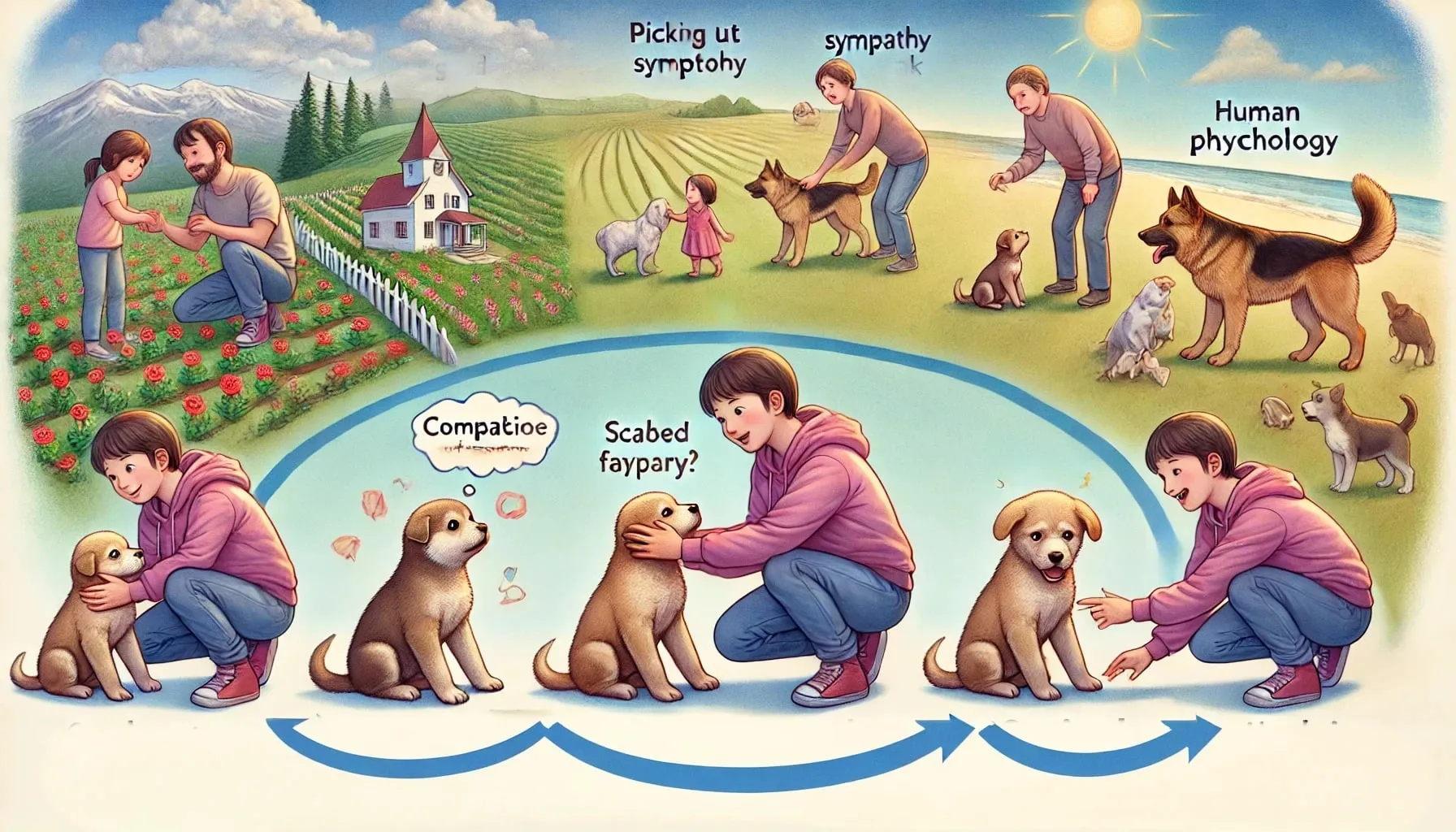Understanding Fear in Dogs

Most humans give affection when they see their puppy scared or their dogs scared. They either pick the puppy up, or they touch out of sympathy feeling pity, or they baby talk. All of this is done out of compassion, with good intentions, and they do this because they are applying human psychology to a dog.
By human psychology, I mean that if I am scared and you give me affection, I can rationalize the whole thing and realize that I am receiving affection so that I can come out of fear. But dogs are different; they cannot rationalize this, they cannot understand that they are receiving affection to help them overcome the fear.
Whenever a dog receives affection, his or her state of mind gets nurtured. So if you are giving affection when the dog is under stress, then you are nurturing his stressed state of mind. This is one of the differences between human psychology and dog psychology.
Now multiply this nurturing of the wrong state of mind, nurturing a fearful state of mind, every day, then over a period of time, the dog will get habitual of living in a fear state of mind always, which leads to a very unhappy life, a sad life just because of the lack of understanding of humans.
Key Points to Remember
- Avoid Reinforcing Fear: Do not comfort your dog when they are scared. Instead, act normal and provide leadership.
- Create Positive Associations: Help your dog associate fearful situations with positive experiences gradually.
- Desensitization: Slowly expose your dog to the fear source in a controlled way, increasing the exposure gradually over time.
- Professional Help: Seek advice from a dog behaviorist if your dog’s fear is severe or persistent.
Practical Tips
- Stay Calm and Confident: Your dog looks to you for cues. If you remain calm and confident, it helps them feel more secure.
- Use Training: Employ training techniques to build your dog’s confidence.
- Safe Spaces: Create a safe space for your dog where they can retreat and feel secure.
- Routine: Maintain a consistent routine to provide stability for your dog.
Understanding and addressing fear in dogs requires patience and knowledge. By avoiding the reinforcement of fearful behavior and using positive reinforcement techniques, you can help your dog lead a happier and more confident life.
Test your knowledge
According to the article, why should you avoid giving affection to your dog when they are scared?
How is dog psychology different from human psychology regarding fear and affection?
What is a recommended way to help your dog overcome fear?
For more information or support, join our Pack Platform to connect with other dog parents and experts.